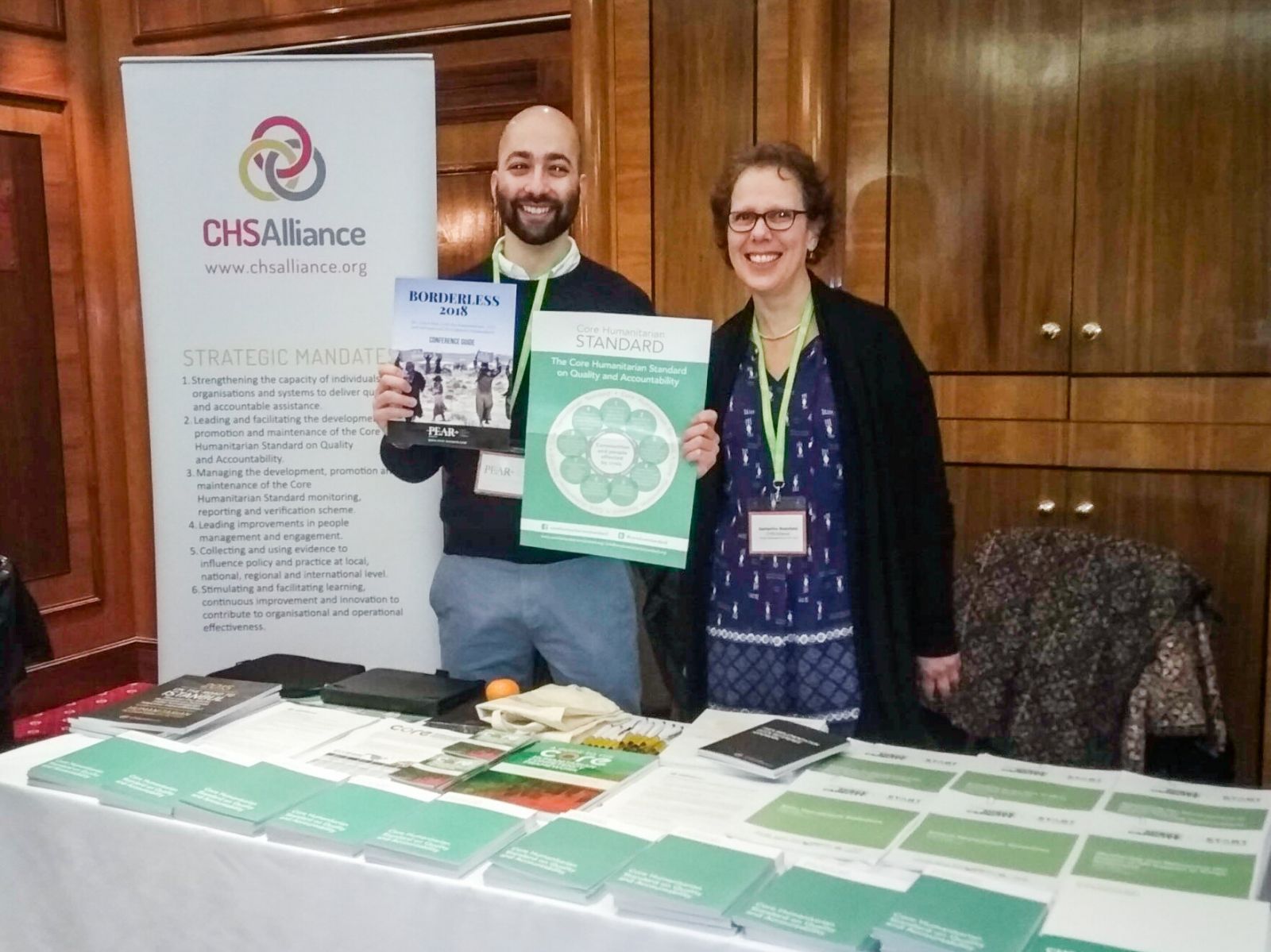Borderless 2018 – Linking travel risk mitigation with the Core Humanitarian Standard
On 8 March 2018, the second annual Borderless conference took place in London where the CHS Alliance was present to introduce the Core Humanitarian Standard to participating NGOs and stakeholders working in the field of travel risk mitigation. The general purpose of the conference was to bring together travel risk experts and the humanitarian sector to discuss the safety and well-being of humanitarian staff, and to learn about some of the services and solutions that are currently being offered.

For humanitarian and development organisations addressing the security needs of their staff is and should be a top priority not only because of the general moral obligation to look after employees, but also because staff whose security needs are met and wellbeing considered, perform better in their roles. With these in mind, the Core Humanitarian Standard, which aims to improve the quality and accountability of the humanitarian sector, contains a commitment that specifically focuses on employees: commitment 8 states that staff need to be supported to do their job and treated fairly and equitably, and under organisational responsibilities lists that their security and wellbeing have to be guaranteed by policies being in place.
The difficulty with mitigating security risks is that they are not constant, they change from time to time and from environment to environment, thus it is challenging to be always prepared. For instance, Falanx Assynt’s Director of Geopolitical Intelligence, James Brandon in his presentation reviewing some of the security risks and challenges up to 2020, pointed out that each region and even country has its own agenda: while Egypt faces a rapidly growing population paired with water scarcity, in Myanmar rising religious nationalism and hostility to foreign NGOs are the main concerns – just to name a few examples. Also, there are emerging sector-wide concerns, e.g. fake news that is used to discredit NGOs working in the field. James pointed out that the humanitarian sector has to be prepared not only against physical security risks but against virtual (online) risk as well, and should learn to develop and adopt strategies to combat fake news to maintain reputation.
John O’Sullivan, Global Marketing Director at Key Travel reminded the audience that low risks shouldn’t be forgotten about, and organisations have to make sure that staff are informed about those to the same extent as high risks. For example, employees might not even be aware that travelling in London could cause distress among staff, or not getting enough information about what to do when losing our passports. Are organisations ready to provide support in these situations, do they have enough capacities? John concluded his presentation by sharing ‘top three tips’ to address low risks: 1) hand out travel emergency cards; 2) create WhatsApp group for staff and 3) share itinerary with co-workers.
Important remarks were made by Lisa Reilly, Executive Director at the European Interagency Security Forum by drawing attention to staff not being the same, having different profiles, thus different security needs. She noted that the diversity of personal profiles is not systematically addressed in most NGOs’ security risk management system. Mapping out all the different profiles can be difficult as sometimes sensitive questions have to be asked to fulfil duty of care obligations.
Continuing the discussion about various security needs, Megan Nobert former director of Report the Abuse shared some advice on how to correctly follow-up with victims of sexual abuse. In these situations, the most important is to make sure that victims feel safe and secure. She emphasized that all of us have a responsibility to make ourselves available and approachable. Organisations also have to be conscious of women having more security risks than men. A simple exercise could raise awareness among staff: make employees think about their own and colleagues’ security risks and then share the finds with each other.
The day ended with two refreshing and eye-opening presentations: Proelium Law staged a mock court with the aim of showing the audience what to expect from a lawsuit when staff get injured due not taking security measures seriously, and Comic Relief shared some insight about added security risks when celebrities join a campaign in the field for fundraising purpose.
